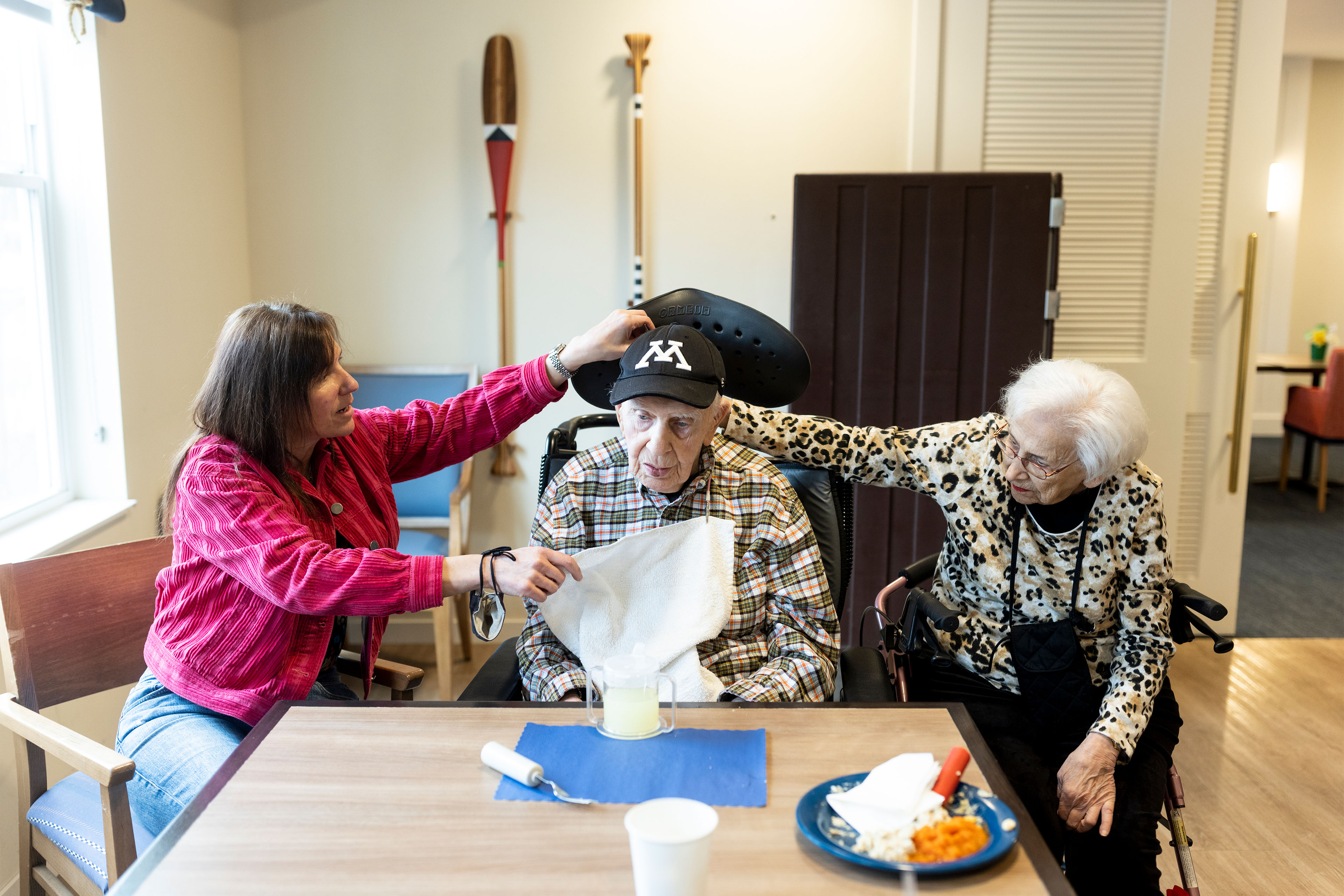Explore high-quality Memory Care facilities designed for cognitive health.
Explore high-quality Memory Care facilities designed for cognitive health.
Blog Article
Assisted Living: a Compassionate Setting for Seniors With Memory Challenges
By providing individualized treatment and structured routines, these communities not only boost cognitive function but also foster psychological connections, lowering isolation among residents. The effectiveness of these interventions often pivots on the participation of families in the treatment process, motivating a more detailed exam of exactly how this joint initiative affects results for both citizens and loved ones.
Understanding Memory Obstacles
Recognizing memory obstacles is necessary for giving effective like elders dealing with cognitive decline. Memory problems, which can manifest as forgetfulness, complication, or trouble remembering current events, are usually signs and symptoms of conditions such as Alzheimer's disease or other kinds of dementia. These obstacles can considerably impact a senior's capability to do everyday tasks, maintain social relationships, and handle individual security.
Identifying the various stages of cognitive decrease is important for caregivers and healthcare specialists. Early-stage memory loss may entail moderate forgetfulness, while mid-stage decrease can lead to extra obvious disorientation and complication. In late-stage dementia, people may shed the capacity to communicate successfully, needing detailed assistance and understanding from caretakers.
In addition, memory difficulties can stimulate a variety of emotional reactions, including stress, stress and anxiety, and depression. This demands a compassionate method to care that prioritizes the emotional well-being of the individual. Understanding the complexities of memory difficulties allows caretakers to produce tailored methods that boost communication, advertise engagement, and supply a feeling of security. Eventually, a deep understanding of these difficulties is basic to supplying thoughtful and effective look after elders encountering cognitive decline.
Benefits of Assisted Living
Helped living deals many benefits for elders with memory obstacles, providing an encouraging setting that fosters self-reliance while guaranteeing safety and security and care. Among the main advantages is the day-and-night guidance and support readily available, which helps minimize risks connected with memory-related concerns. Memory Care. This continuous support allows senior citizens to participate in daily tasks without the concern of accidents or complication
Additionally, helped living centers frequently offer organized regimens that can improve cognitive function and stability. These routines aid residents really feel more safe and reduce anxiousness, as they know what to anticipate daily. Social interaction is one more significant advantage, as these settings urge connections among residents, promoting psychological wellness and decreasing feelings of seclusion.
In addition, aided living personnel are educated to identify the unique demands of elders with memory challenges, enabling customized care strategies that address specific preferences and requirements. This tailored approach not only improves the top quality of care but also encourages seniors to keep a feeling of freedom. Generally, assisted living acts as a caring service, balancing the need for support with the desire for freedom in the lives of elders dealing with memory difficulties.
Specialized Care Approaches
Executing specialized care techniques is essential for efficiently sustaining senior citizens with memory obstacles. One essential strategy is person-centered care, which stresses the importance of understanding each resident's life history, choices, and values.
One more crucial approach right here entails using cognitive stimulation therapies. Activities made to improve memory recall, urge social communication, and advertise imagination can dramatically affect residents' general well-being. Strategies such as memory therapy take advantage of individual memories to spark discussion and connection, while music therapy can stimulate feelings and memories, supplying comfort.

Developing a Helpful Community
(Dementia Care Charlotte)A supportive neighborhood plays a crucial role in boosting the lives of seniors with memory challenges. Such an area cultivates an atmosphere of understanding, compassion, and encouragement, which is vital for individuals encountering cognitive troubles. By creating a network of support, aided living centers can significantly enhance the top quality of life for residents.
Central to an encouraging community is the presence of qualified personnel who are sensitive to the unique demands of senior citizens with memory disabilities. These specialists not just provide necessary care however likewise involve homeowners in purposeful activities that stimulate cognitive feature and promote social communication. Programs that motivate participation in team exercises, arts and crafts, or memory video games can boost both physical and mental health.
In addition, a helpful neighborhood promotes strong links amongst homeowners. Motivating friendships and peer support helps to minimize sensations of isolation and cultivates a feeling of belonging. Normal get-togethers and communal dining experiences can even more reinforce these bonds, producing an atmosphere where elders really feel valued and understood.
Involving Family Members in Care
Involving households in the treatment process is crucial for providing comprehensive assistance to senior citizens with memory difficulties. Household members often work as important advocates, supplying understandings right into the person's choices, history, and regimens that can enhance customized care. By including them in conversations and care preparation, aided living facilities can produce an extra all natural approach that resonates with the local's requirements.

Urging households to join treatment not only enhances the well-being of the elderly but also offers emotional support to relative. Involving family members in treatment grows a sense of community and belonging, ensuring that senior citizens feel attached to their loved ones. Inevitably, a collaborative technique to care enhances the lives of both homeowners and their households, creating a thoughtful and helpful setting that advertises dignity and respect.
Conclusion
In verdict, assisted living offers as an important resource for seniors experiencing memory challenges, providing personalized treatment customized to private demands. By involving family members in the care process, assisted living produces a detailed support network, eventually improving the lives of citizens and their liked ones.
Report this page